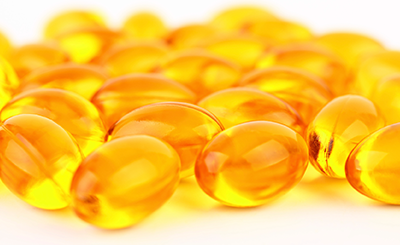Several Nutrients May Boost Effectiveness of Antidepressants
Abstract
The findings of a recent meta-analysis support the use of S-adenosylmethionine, methylfolate, omega-3, and vitamin D in combination with other antidepressants for patients with depression.
Nutrients commonly sold in health food stores may boost the effectiveness of antidepressants at treating depression, according to the results of a meta-analysis published in AJP in Advance. The findings support the use of S-adenosylmethionine (SAMe), methylfolate, omega-3, and vitamin D for patients with depression.

Researchers from Australia and the United States systematically reviewed 40 studies from 1960 to 2015 that examined the effectiveness of an adjunctive nutrient-based intervention for people with depression who were taking antidepressant medication.
To be included in the meta-analysis, subjects had to have been diagnosed with major depressive disorder or have ongoing depression. Researchers defined ongoing depression as current use of antidepressant medication and a moderate or above-threshold level of depressive symptoms according to a validated scale, such as a score above 17 on the Hamilton Rating Scale for Depression.
Of the 40 studies reviewed, 31 were randomized, double-blind, and placebo-controlled trials.
Overall, the researchers found positive results for studies testing SAMe, methylfolate, omega-3 (primarily eicosapentaenoic acid [EPA] or ethyl-EPA), and vitamin D, with positive isolated studies for creatinine, folinic acid, and an amino acid combination; studies using zinc, folic acid, vitamin C, and tryptophan produced mixed results, and studies of inositol produced nonsignificant results.
Six of eight studies in which patients with depression took omega-3 fatty acids—including combinations of EPA and docosahexaenoic acid (DHA) as well as ethyl-EPA with the dosage of EPA ranging from 1 to 2 g per day—revealed a statistically significant benefit of omega-3 plus antidepressants over placebo.
“All of the nutraceuticals reviewed in this article have mechanistic antidepressant activity underpinning their use,” the authors wrote. For instance, omega-3 appears to exert “antidepressant activity potentially through modulation of norepinephrine, dopamine, and serotonin reuptake, degradation, synthesis, and receptor binding; through enhancement of glutathione antioxidant capacity; and through enhancement of cell membrane fluidity.” The anti-inflammatory properties of the compounds examined may also contribute to their antidepressant efficacy, the researchers added.

Jerome Sarris, Ph.D., says that more research is needed to pinpoint other nutraceuticals that may have the potential to boost the effectiveness of antidepressants.
First author Jerome Sarris, Ph.D., senior research fellow and head of the ARCADIA Mental Health Group in the professorial unit at the University of Melbourne, told Psychiatric News that he believes this study demonstrates that there is “adequate evidence to support strong consideration of omega-3 and SAMe for adjunctive use in the treatment of depression.”
In the future, he said he would like to see additional studies of the many other nutraceuticals that preliminary evidence suggests may also enhance the effectiveness of antidepressants, as well as studies that examine whether specific genetic polymorphisms may modify response to the nutrients.
In clinical practice, study coauthor David Mischoulon, M.D., Ph.D., said he advises his patients to take nutritional supplements to boost the effects of antidepressant treatment on a case-by-case basis but also to exercise caution when purchasing the over-the-counter nutrients. Although the amount of active ingredient found in natural supplements may differ from brand to brand, those used in clinical trials are usually of high quality, noted Mischoulon, who is an associate professor of psychiatry at Harvard Medical School and director of research and of alternative remedy studies in the Depression Clinical and Research Program at Massachusetts General Hospital.
“Patients deserve access to every tool we have to fight depression,” said Drew Ramsey, M.D., an assistant clinical professor of psychiatry at Columbia University. “Clinicians should see these recent studies as supporting trials of these natural agents,” Ramsey, who was not involved with this study, told Psychiatric News. ■



